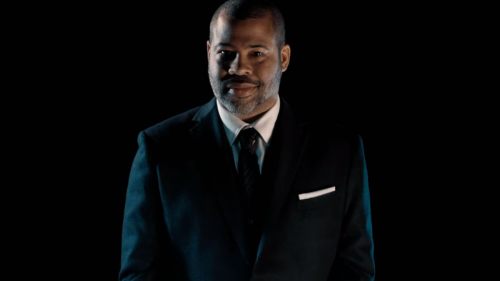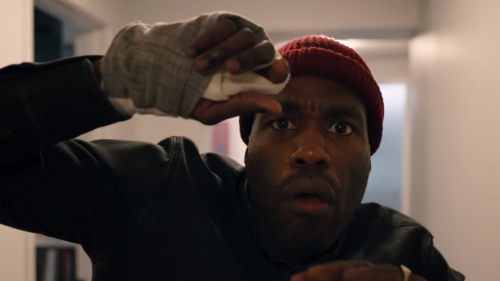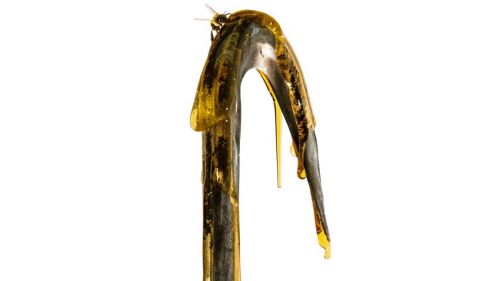SXSW Review: Jordan Peele’s US Delivers A Fantastic, Fearsome Follow-Up To GET OUT
As an opener, Get Out is a tough act to follow. But like some of the best filmmakers, Jordan Peele isn't trying to replicate his previous success. It may be difficult to discuss Us without at least paying lip service to the near-universally acclaimed film that preceded it, but there's more – so much more – to be said for his follow-up, should we divest (or untether, as it were) it from its predecessor. If you allow it, Us is bold and brilliant enough to stand on its own, to exist in the sun without comparison; and yet it would not be in front of our eyes were it not for the film that came before it. That very idea – and again, so many more – is at the heart of Us, a film about doubles and enemies within and repression and fear, a film that's as much about the audience watching it as the man who made it.
Lupita Nyong'o and Winston Duke headline Peele's sophomore effort, which follows Adelaide, her husband Gabe, and their children Zora (Shahadi Wright Joseph) and Jason (Evan Alex) on a coastal family getaway to the home where a young Adelaide once vacationed with her own parents. It doesn't take long for a particularly unpleasant memory to surface, almost presciently, in Adelaide's mind – the memory of another girl who looked just like her but who wasn't her; a shadow of herself. Almost immediately Adelaide and Gabe's home is beset by the doppelganger versions of themselves, not unlike the girl from Adelaide's memory. "It's us," Jason says with a perceptive tilt of the head, and even that word becomes loaded with meaning amid the blood and violence and desperation that follows. On its outermost surface, Us is an effective survival horror thriller in the vein of The Strangers, featuring phenomenal performances from all involved. Tim Heidecker and Elisabeth Moss make a decadent meal out of their supporting parts as friends of Gabe and Adelaide, but Nyong'o's performance rules them all with a transcendent duality that demands repeat viewings.
As with Get Out, Peele recontextualizes his influences into strong aesthetic choices; the opening credits sequence – a slow zoom out from the eye of a caged rabbit, revealing it as but one of many – evokes the cerebral horror of Brian De Palma and David Cronenberg. In particular, the influence of the former's Sisters and the latter's preoccupation with the body/self as foreign object are apparent throughout. Us is so layered in meaning it may as well be an immersive experience; a metatextual funhouse mirror akin to the one young Adelaide encounters in her early flashback. It's a film about mental illness and a film about trauma and PTSD. It's a film about imposter syndrome and never quite feeling as though you've earned the things you have or the people who love you. It's a film about our country, as Adelaide sharply observes that these "others" are Americans – and we are our own worst enemy, just lying in wait for the moment when we can easily topple our own lives and all we've built around them.
It's a film about the part of ourselves that we hate the most; the weak, needy part that's all unseemly desire and craven id; the part that we refuse to acknowledge because it is the absolute worst of us, or so we think. What if you ignored that part of yourself and refused to nourish it, but it found a way to grow in the shadows? What if it found a way to feed itself, and learned to approximate your movements and sounds? What if it got out? Imagine being confronted by this existential concept made feral reality; imagine the reckoning. If Us believes we are our own worst enemy – and we most certainly are – then the same holds true for Peele himself, and doubly so when one considers the film as the inverse of Get Out – where that film peered out from a certain lived experience, Us peers in. Perhaps the worst that can be said for Us is that it's almost too thematically dense, to the point where you can see Peele trying to talk his way out of the psychic labyrinth he's created. There is a moment in the third act when Us just... keeps going, and then there's some exposition, and then... it keeps going. And it's not that anything we're still watching is bad; it's all good stuff and the performances are great, but one can't help but wonder if Peele could use some help killing his darlings. Or maybe there's something apt about his inability to do so. In a sense, the flaws of Us make it even better – more dimensional, more chilling, more relatable. More like us.



